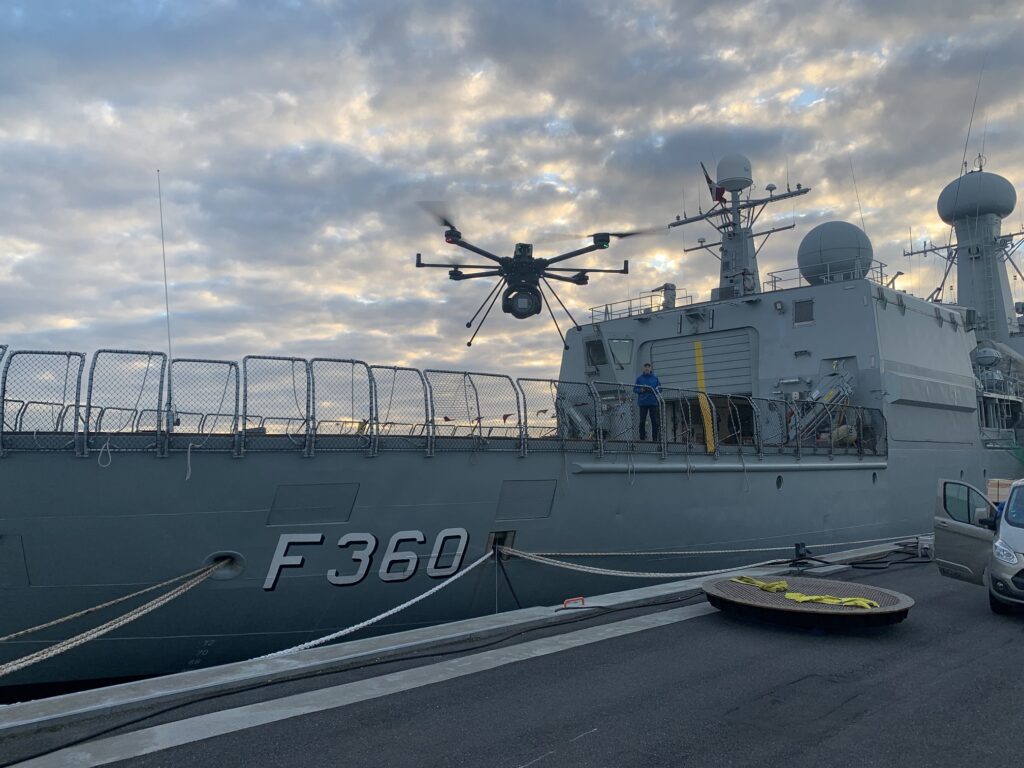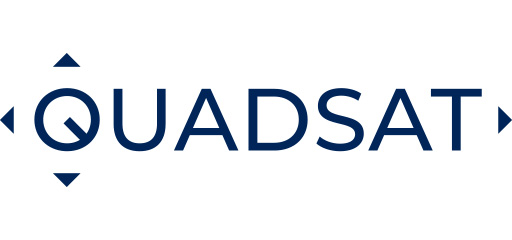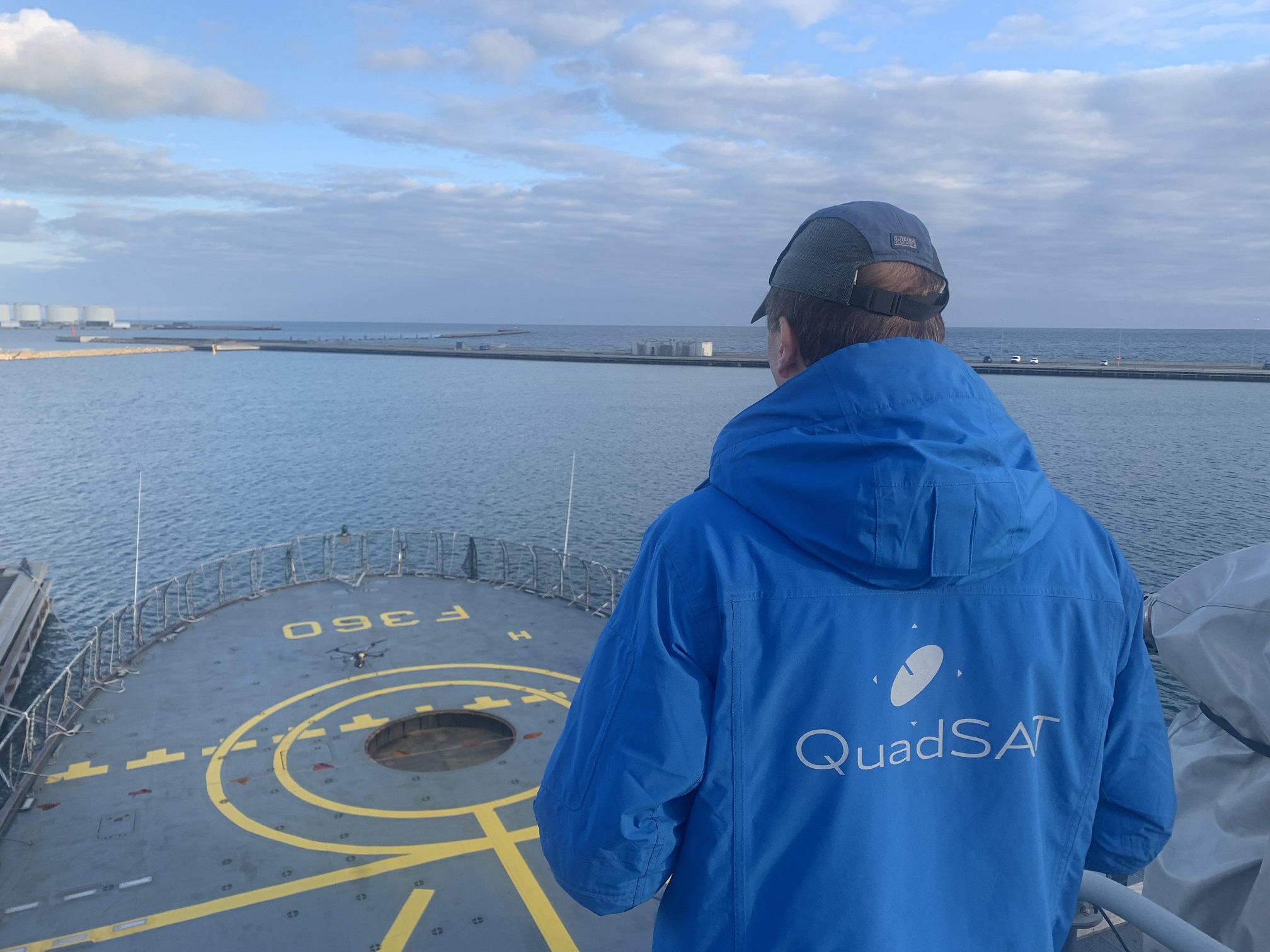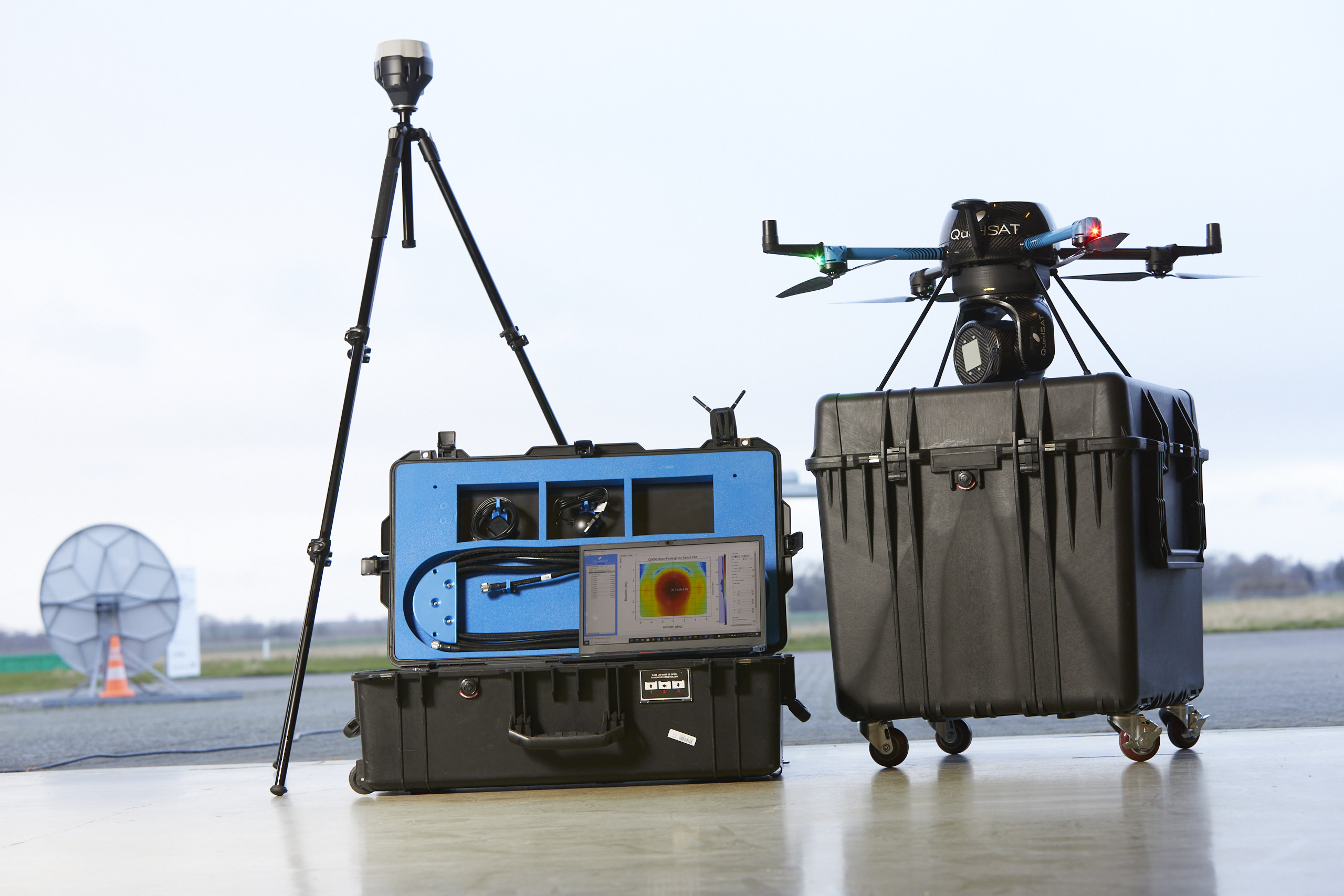Odense, Denmark, 18th January 2023 – QuadSAT has performed a technical demonstration of its drone-based testing solution in a real operational environment for the Danish Navy. The pilot project was designed to explore the system’s potential both for measuring antenna radiation diagrams on board vessels, as well as for future testing and calibration of other Navy equipment, such as radars, ESM, and sonars.
Working together with the 1st Squadron at Navy Base Frederikshavn and the crew of F360 Hvidbjørnen, QuadSAT was able to test antenna radiation on a Navy vessel prior to operation. The QuadSAT system for testing and verification of satellite antennas consists of a drone, integrated with a unique RF payload that enables high accuracy measurements. Purpose-built software is able to automate aspects of the test and collate and analyse measurements.
During the pilot project, QuadSAT carried out a number of tests including antenna radiation diagram with radome, 360 degree blockage zone check and tracking without the presence of a satellite. This resulted in a number of raster scans at various angles, as well as principle cuts with and without satellite tracking. As well as opening up the potential for other low-effort, high value tests on currently installed satellite communication systems, it also served to prove accuracy in line with standards such as ITU-R S.580.
As well as ensuring the satellite communications equipment is operating optimally under in-field conditions before going into operation, this solution can provide an accurate data set for link budgeting. It also enables users to detect and manage degradation before failure. Originally developed for satcoms, QuadSAT is continuing to develop its solution to enable different testing scenarios. This includes work undergoing to enable acquisition of RF data from the environment, which will create specific test scenarios for RF emitting and receiving systems and enable users to understand and react to changes in the RF environment.
Søren Aarhus, Chief Operating Officer, QuadSAT, added: “Ensuring defence equipment is operating effectively is of course extremely important. We believe our approach is cost effective and much more flexible compared to existing options, which will ultimately lead to a safer and more efficient operating environment for the navy. We hope that our system can therefore help the Navy further increase its line of defence against threat.
To see if the QuadSAT system can work in your operational environment, get in touch to request a demonstration. QuadSAT will be exhibiting at GOVSATCOM on 23rd February 2023. Find out more or book a meeting.



